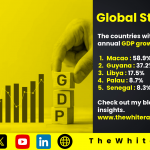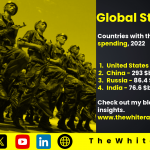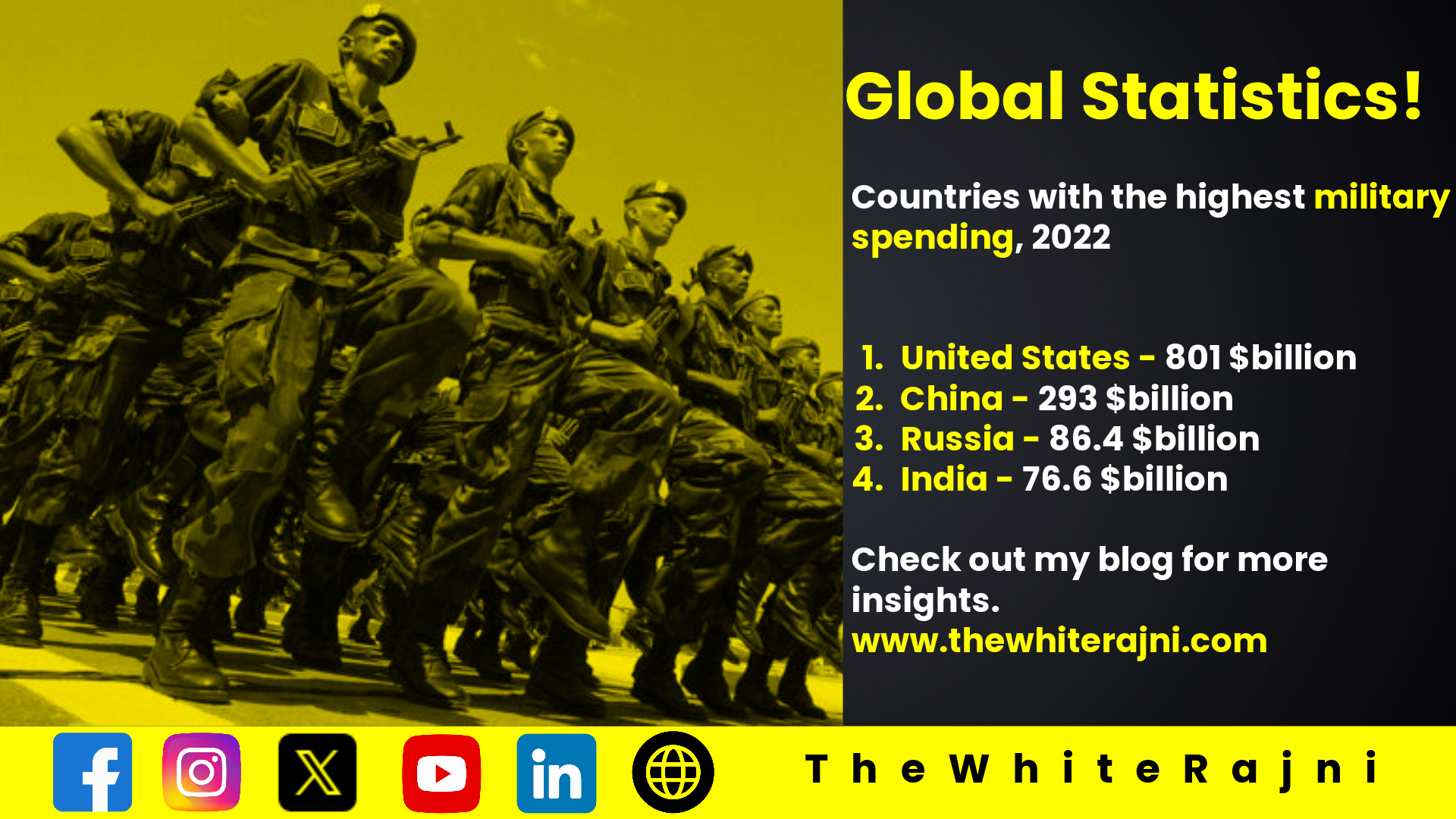Military spending, the allocation of funds for a nation’s armed forces, is a topic of global significance. It encompasses expenses related to weaponry, equipment, personnel, and training. However, it remains a subject of debate, with some advocating its necessity for safeguarding national security, while others criticize it as wasteful and avoidable.
This article presents a list of the top 10 countries with the highest military spending in 2022, as reported by the Stockholm International Peace Research Institute (SIPRI). Each country’s flag is linked to its Wikipedia page for additional information.
| Rank | Flag | Country | Military Spending (US$ billions) |
|---|---|---|---|
| 1 |  | United States | $801 |
| 2 |  | China | $293 |
| 3 |  | Russia | $86.4 |
| 4 |  | India | $76.6 |
| 5 |  | United Kingdom | $61.4 |
| 6 |  | France | $56.1 |
| 7 |  | Japan | $54.1 |
| 8 |  | Germany | $50.4 |
| 9 |  | South Korea | $45.7 |
| 10 |  | Saudi Arabia | $42.9 |
1. United States: With a staggering military expenditure of $801 billion, the United States maintains its position as the world’s top military spender. The country’s military budget is unmatched, underscoring its commitment to national security and global influence.
2. China: China, the world’s most populous nation, allocates substantial resources to its military, with an expenditure of $293 billion. This underscores China’s rising global prominence and its efforts to modernize its armed forces.
3. Russia: Russia ranks third with military spending of $86.4 billion. The country continues to prioritize defense as a means to protect its interests and assert its influence on the world stage.
4. India: India’s military expenditure stands at $76.6 billion, reflecting its strategic concerns in a complex regional environment and efforts to modernize its armed forces.
5. United Kingdom: The United Kingdom allocates $61.4 billion to its military, upholding its role in global defense efforts and ensuring its security interests are safeguarded.
6. France: France, a European military power, maintains a military budget of $56.1 billion, solidifying its role in European security and global military initiatives.
7. Japan: Japan’s military spending of $54.1 billion is primarily focused on regional security and safeguarding its interests in a geographically complex area.
8. Germany: With military spending at $50.4 billion, Germany plays a significant role in European defense and security.
9. South Korea: South Korea allocates $45.7 billion to its military, emphasizing regional stability on the Korean Peninsula.
10. Saudi Arabia: Saudi Arabia, a key player in Middle Eastern geopolitics, dedicates $42.9 billion to its military to protect its interests in the region.
The Significance of Military Spending:
Military spending is a multifaceted issue with far-reaching implications. Here are some key aspects of its importance and impact:
- National Security: Countries allocate substantial resources to their militaries to protect their sovereignty and citizens. A robust defense is seen as essential for safeguarding a nation’s borders and deterring potential threats.
- Global Influence: Military power often translates into global influence. Countries with formidable armed forces can play a significant role in international diplomacy and conflicts.
- Deterrence: High military spending can act as a deterrent, dissuading potential adversaries from hostile actions due to the perceived strength of a nation’s armed forces.
- Economic Considerations: Military spending has economic implications. Defense industries create jobs and stimulate economic growth. However, excessive spending can strain a country’s finances.
- Resource Allocation: Critics argue that excessive military spending diverts resources from vital areas like education, healthcare, and infrastructure development. Striking the right balance between defense and social spending is a challenging endeavor.
- Global Stability: Countries with significant military capabilities can contribute to global stability by participating in peacekeeping missions and humanitarian efforts.
- Arms Race: Excessive military spending can contribute to arms races and heightened tensions between nations. This can be destabilizing, especially in regions with existing conflicts.
- Military Technology: Investments in military technology and innovation can lead to advancements in civilian technologies, benefiting society as a whole.
- National Sovereignty: Maintaining a strong military is often associated with preserving a nation’s sovereignty and ensuring it can make independent decisions on the world stage.
- Cost-Benefit Analysis: It’s crucial for governments to conduct a cost-benefit analysis of military spending. Assessing the advantages and disadvantages is essential for making informed decisions.
In conclusion, military spending is a complex and contentious issue that impacts a nation’s security, economy, and global standing. Striking the right balance between defense needs and other essential priorities is a continuous challenge for governments worldwide. Understanding the implications of military spending is crucial for informed public discourse and policymaking.










